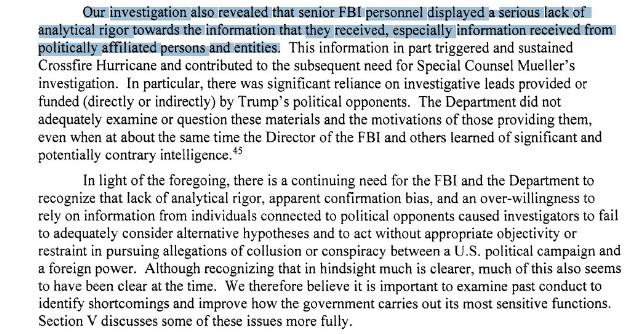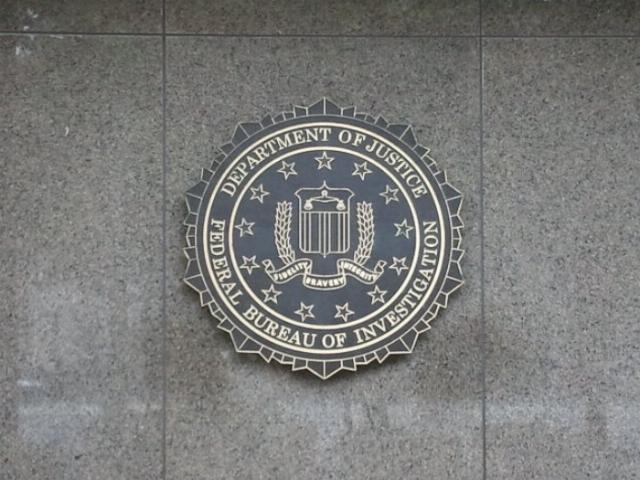We support our Publishers and Content Creators. You can view this story on their website by CLICKING HERE.
The FBI’s background investigation (B.I.) process for political nominees has allegedly been corrupted with “improper handling” of sensitive information, according to an investigation by America First Legal (AFL). AFL’s November 7 press release asserts that the mishandling of private information is a “critical” matter” that must be addressed because of the potential to use the B.I. process as a “weapon against future nominees.”
It also appears that select staff from the Senate Judiciary Committee “appear to have shared FBI background reports and personal financial information in a breach of Senate security protocols.” AFL rightly asserts that Americans, including administration nominees, have a right to privacy “to the greatest extent possible,” as cited in the Privacy Act of 1974.
AFL alleges that it has found “explosive new discoveries about the FBI’s flawed and unlawful background investigation process for nominees to positions that require Senate confirmation.” The investigation goes back to late June 2021, when AFL submitted a Freedom of Information Act (FOIA) request to the DOJ.
The June 24, 2021 FOIA request included but was not limited to requests for records related to consent from nominees to be investigated by the FBI and all communications between the FBI and the Senate Judiciary Committee members and staff. In addition, AFL asked the DOJ to respond with “all laws, regulations, guidance and documents” that would apply to the “disclosure of judicial nominee background information files to Congress.” Those requested documents would also include any “memorandum of understanding” (MOU) between the Biden White House and the Senate Judiciary Committee and any MOU between the White House and the DOJ related to the “background investigations of potential judicial nominees.”
Among the discoveries highlighted in communications provided in AFL’s October 23, 2024 report are the following:
- Select Senate Judiciary Committee staff may have “disclosed sensitive information outside the security process mandated in the MOU.” Some staff allegedly used “non-secure Senate email systems to share FBI and financial information of nominees.”
- “Two staff members appear to have electronically disclosed to executive branch officials FBI background reports.” This violates confidentiality agreements associated with the “business of the Senate Committee on the Judiciary.”
- “Background investigation reports were shared outside the custody of the Security Manager by non-designated Staff Members and sent electronically,” also a violation of MOU security provisions.
- Certain Senate Judiciary Committee staff “appear to have failed to heed the command” that “Designated Staff Members will maintain strict control of the FBI background reports in their custody.”
- DOJ officials appear to have “repeatedly shared BI and personal financial information with Senate Judiciary Committee staffers.” Those DOJ officials were allegedly not “signatories to any agreement with the Senate Judiciary Committee.”
- According to the investigation, Senate majority staff sent “protected BI information to the executive branch.”
- Executive Branch officials from the DOJ also allegedly “disclosed BI information via email to Senate majority staff,” which appears to have “violated security protocols of the MOU.”

The requested communications provide troubling evidence of a failure to protect sensitive nominee information on the part of officials and certain staff members. Gene Hamilton, executive director of America First Legal, believes that breaches of privacy like the ones revealed in AFL’s investigation will discourage “patriotic Americans” from wanting to serve because they worry that their “private information might get mishandled.”
AFL’s previous ancillary investigative work seems to show consequential politicization of the FBI, bias that seems to have resulted in the degradation of the FBI’s investigations. AFL’s September 2023 report shows numerous instances where the Biden administration sought to “[push] forward ideologically preferred nominees” aided by the “FBI’s violations of the Privacy Act and the Paperwork Reduction Act.
The September 2023 shows a pattern of politically biased behavior that became more evident during the Trump administration. AFL cited the Brett Kavanaugh hearing and the Durham report as evidence of “routine denigration of procedures” by the FBI during the Trump administration.
While the Trump White House was busy deferring to the Privacy Act, the FBI was using it “as a shield to prevent the White House from ensuring only credible BI files were produced and as a sword when the FBI routinely violated procedural requirements designed to prevent bias in the process.”
Kavanaugh was accused of inappropriate activities when he was a minor, so the Senate Judiciary Committee asked for additional investigations into the allegations. Justice Kavanaugh was found innocent of the accused behavior; however, the “theatrics,” according to the report, ultimately “raise[d] questions about the FBI’s BI process.” The report asserts that had the process been “thorough and objective” in the first place, “supplemental inquiries would never be needed.” AFL contends that bias in FBI may have created a lack of “objectivity or validity of BI reports.”
The September 2023 report also recalls that Special Counsel John Durham himself confirmed, in the Durham Report, that the “senior FBI personnel displayed a serious lack of analytical rigor towards the information that they received.” As the evidence stands today, it is pretty easy to argue that the FBI’s lack of “analytical rigor” was not limited to just one investigation: Durham’s Crossfire Hurricane.
Notably, the September 2023 report also shows that In November 2021, the Biden DOJ “amended its Privacy Act regulations.” The Biden administration allegedly skirted “several longstanding principles” of privacy and removed the requirement that “all name check and background investigation requests” be on a “request form provided by the FBI.”
The Biden administration also removed the requirement of signed consent from nominees in 2021. Litigation shows that the effective date of the forms used by the Biden administration to obtain nominee consent was January 20, 2021. AFL believes that the administration “stopped using consent forms for FBI investigations” after November 2021.
In his official statement, AFL vice president Dan Epstein explained that evidence now shows that “privacy protections — and binding agreements signed by the Senate — are routinely defied” by the FBI and some government officials. Epstein stated,
Candidates for nomination deserve a process designed to ensure only accurate, relevant timely, and complete information is contained in the background investigation file. AFL’s first letter to the House and Senate Judiciary members showed how the FBI’s process failed in those guarantees.
Epstein continued:
Now, we show that privacy protections — and binding agreements signed by the Senate — are routinely defied. If the government ignores privacy and security when it comes to high-level political officials, all Americans should question how the government treats their most private information.


 Conservative
Conservative  Search
Search Trending
Trending Current News
Current News 


